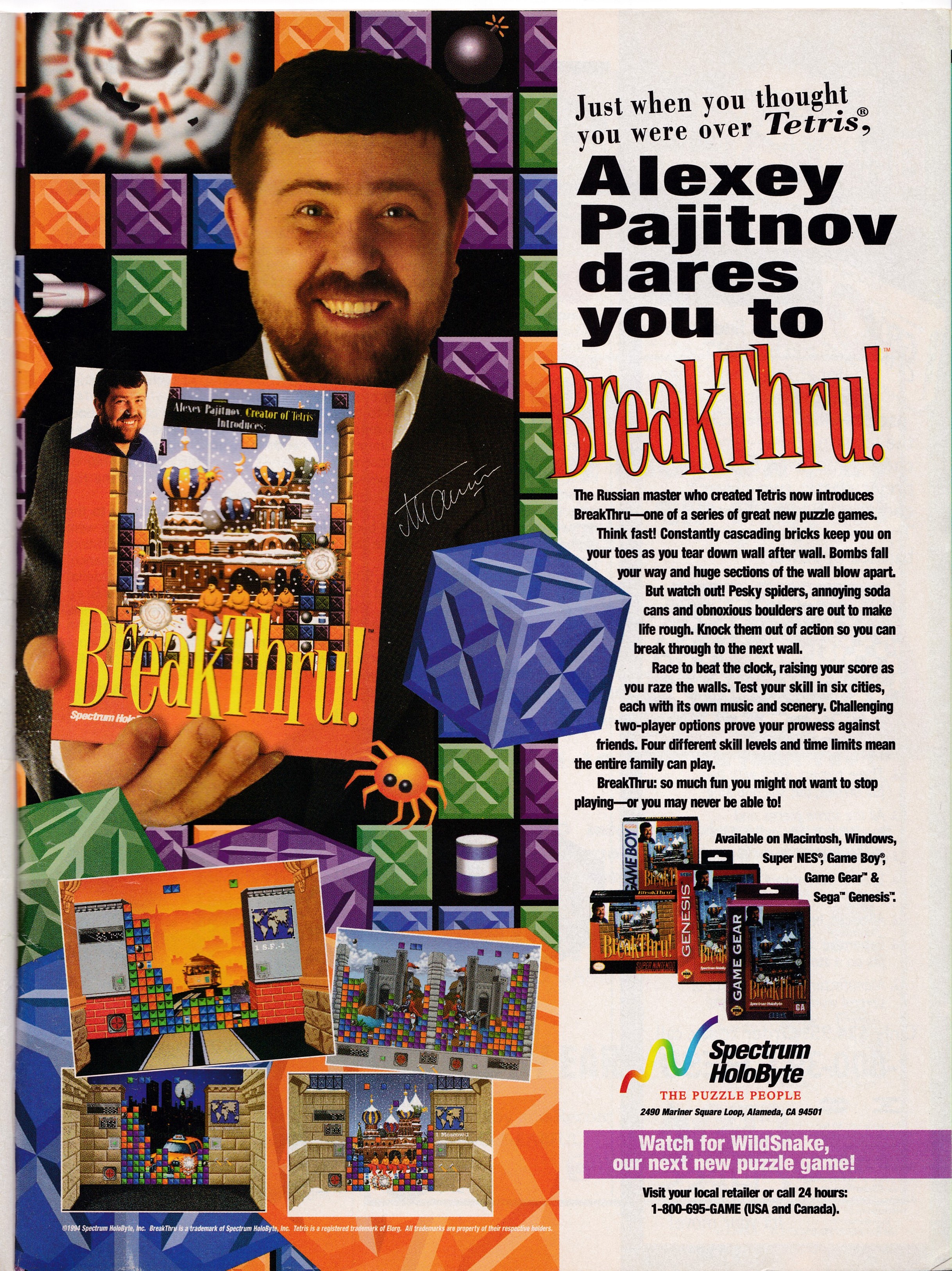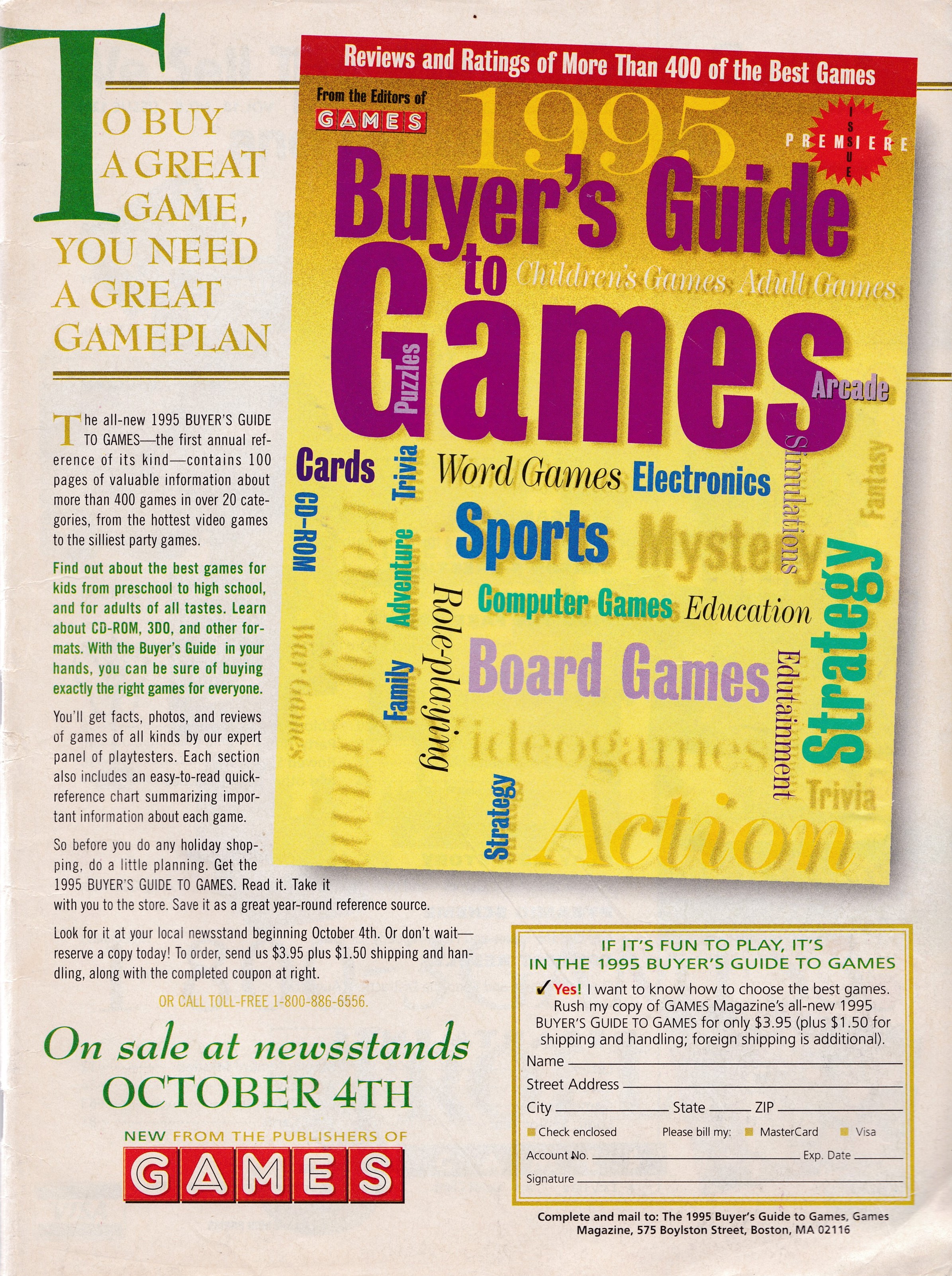
No! Not 1995! This is for 1994! Also, can you guess whose twenty-odd-year-old magazine lost its cover again?
Fair warning: I'm posting this mainly for completionism. (Completionism in regard to the GAMES 100 issues I have, at least, which range from '94 to '98.) There's considerably less content (for our purposes) in this issue for a few reasons. First of all, 1994 was the last time GAMES lumped board games and electronic games together into the same award categories, so the video games have only half the spotlight. This also means less wonky category fun to be had. Beyond this, there are significantly fewer pages devoted to the GAMES 100 (just seven in 1994 compared to the eleven for video games alone in 1996), and the entries for each honoree are significantly shorter. Apparently, the magazine released a standalone, sold-separately GAMES Buyer's Guide to Games in 1994, advertised in this issue as covering over 400 games, not just the Games 100 honorees. This didn't seem to have been a success, as I believe this was the only time GAMES did this; in 1995, the GAMES 100 had a lavish amount of space carved out for it in the primary publication. It does explain in part, though, why the feature seems truncated this year.
So there's not much to discuss, but let's take a look at what we have.
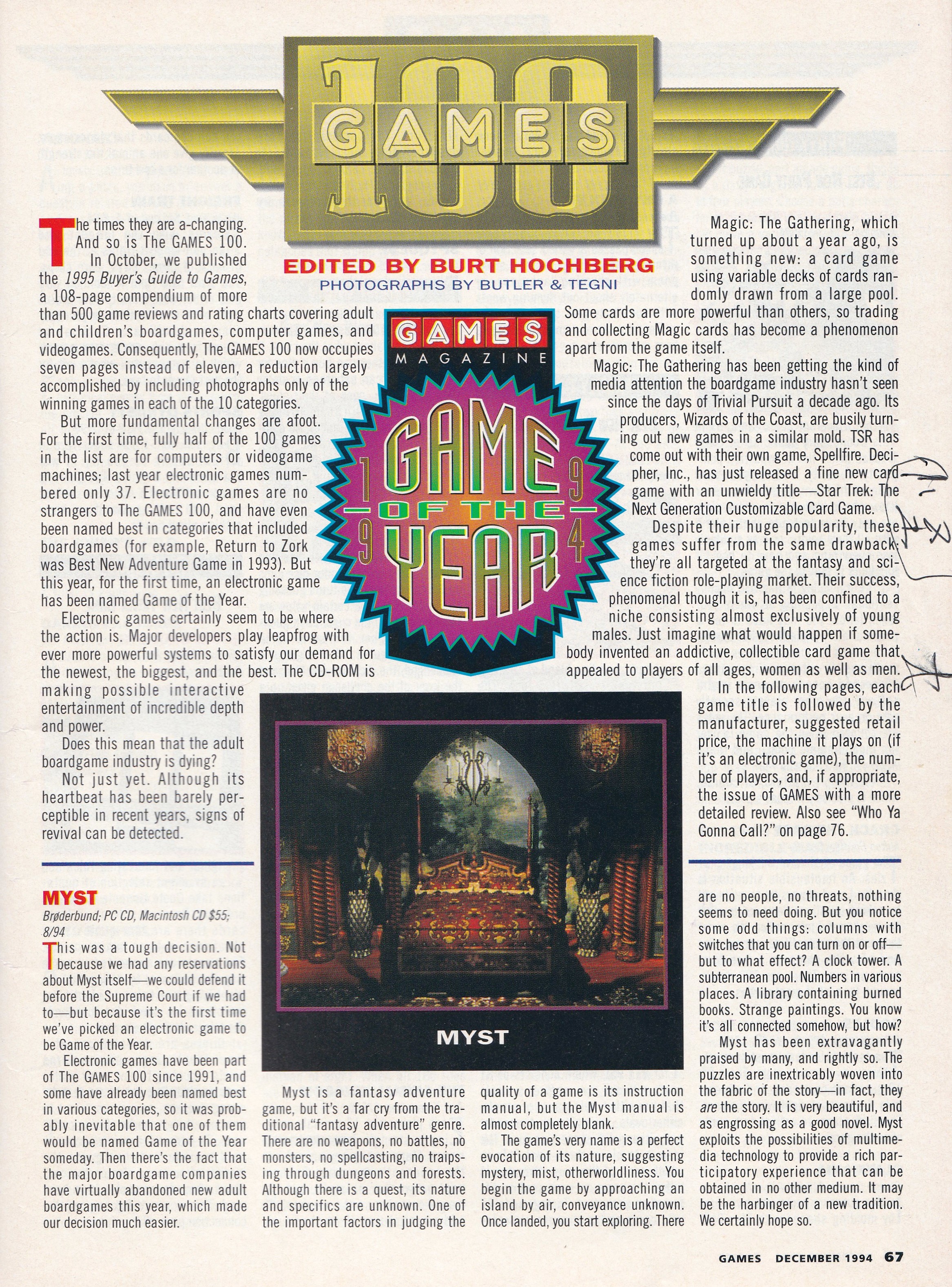
Please ignore my baby attempts at kanji on the side there.
GAMES cites a number of external factors contributing to the selection of Myst, among them an alleged collapse in the adult board games market. I've never followed board games and can't comment on this. Others include the dawn of the CD-ROM and the CCG boom & subsequent diversion of resources away from adult gaming entertainment following the release of Magic: The Gathering.
We can all laugh at the "One of the important factors in judging the quality of a game is its instruction manual," oddity, but the justification and evocation of Myst itself is very good: explaining how intriguing the title was, how it drew you in despite - and because of - being completely opaque, how fully it leveraged new technologies to make something truly geared for adult sensibilities, and how it really set itself apart from anything else in the era. I wasn't familiar with the hate for Myst that popped up among some Serious Gamers at the time of its release - to me, it was a full-fledged big game, the only real use I ever got out of my Saturn besides the Resident Evil port - but this article is an excellent defense of the title against such prejudices.
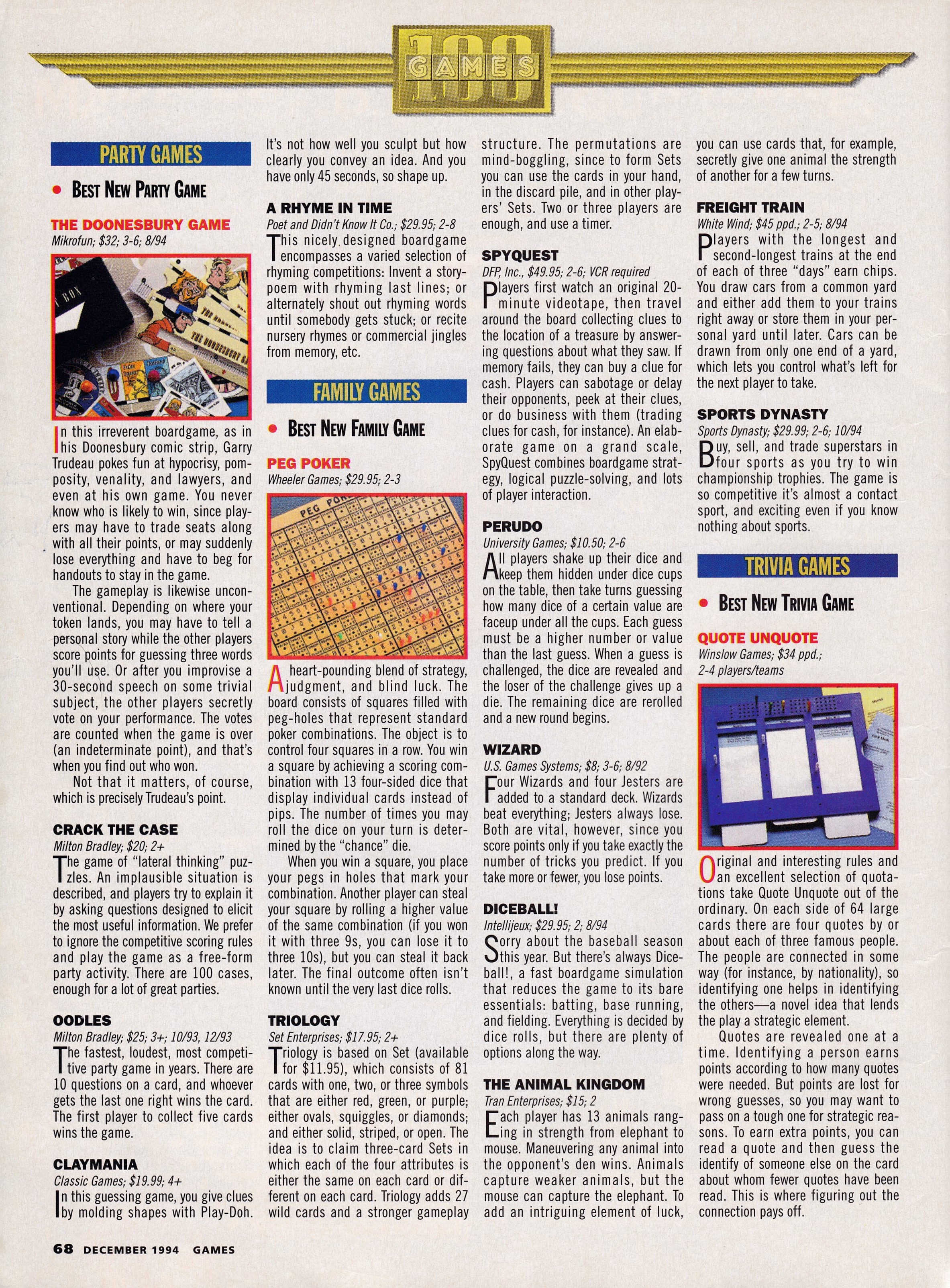
No electronic games here. Also: LOL, Doonesbury. I'm liberal, but it's definitely a sign of the times.
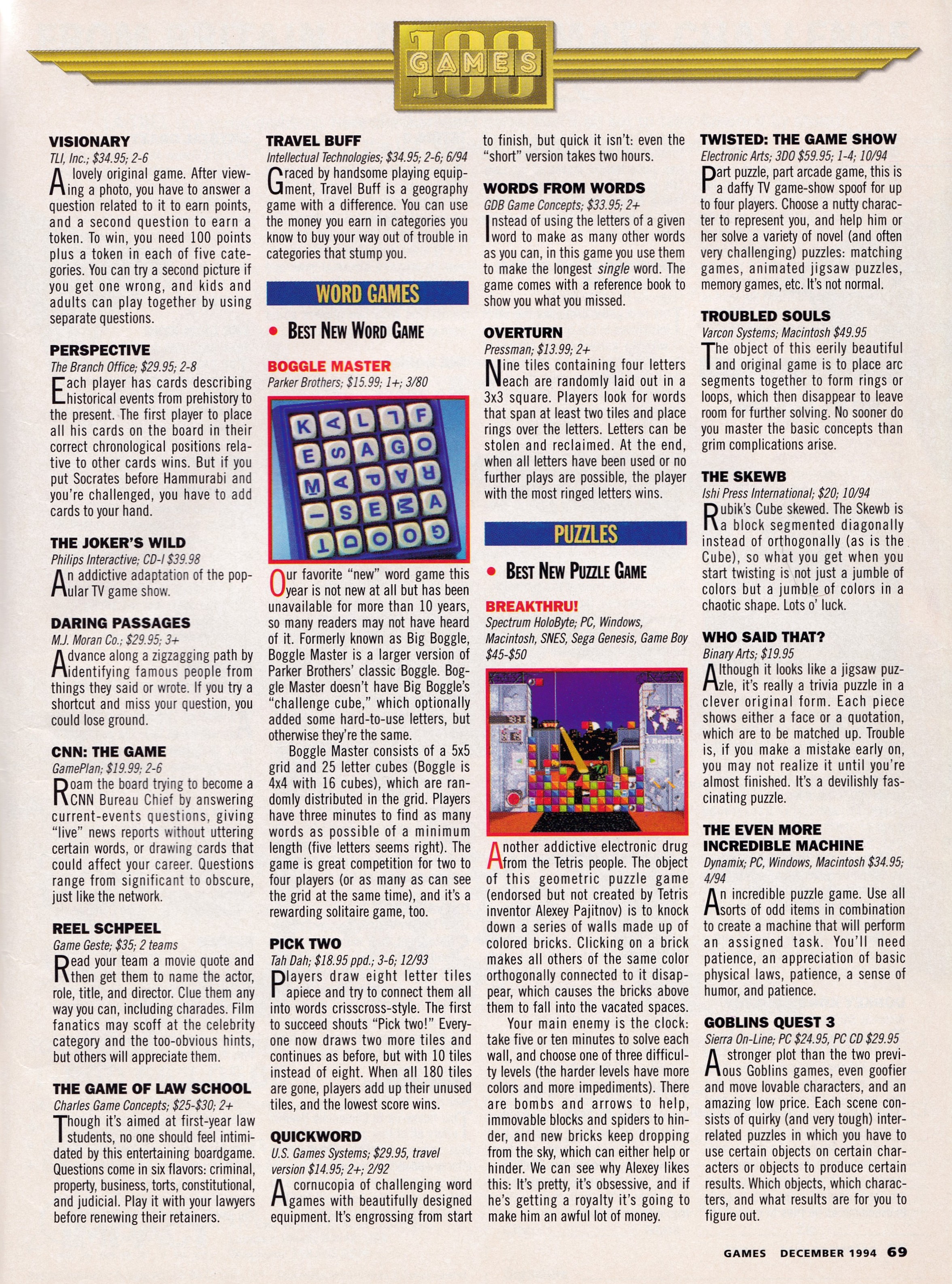
The CD-i makes the first of four appearances on this list, in case you were wondering about the target audience of that console.
"Puzzles" is the first category dominated by electronic titles. ("Puzzles" is an odd category for board/physical games; in that context, it seems to denote toys & contraptions meant to be played solo.) Three notes: 1) Twisted (hi to you, too, 3DO) belongs in Party Games, not Puzzles; 2) I checked out video of the heretofore-unknown Troubled Souls given the evocative title, but it seems to be little more than a skull-themed variation on Pipe Dream; and 3) man, it will never cease to be utter horseshit that Alexey Pajitnov invented the greatest video game of all time and hardly made a dime off it by today's standards. I remember reading he got only like $1 million when he sold the property to the Tetris Company. He should've gotten nine-figure damages out of them for Tetris Effect alone.
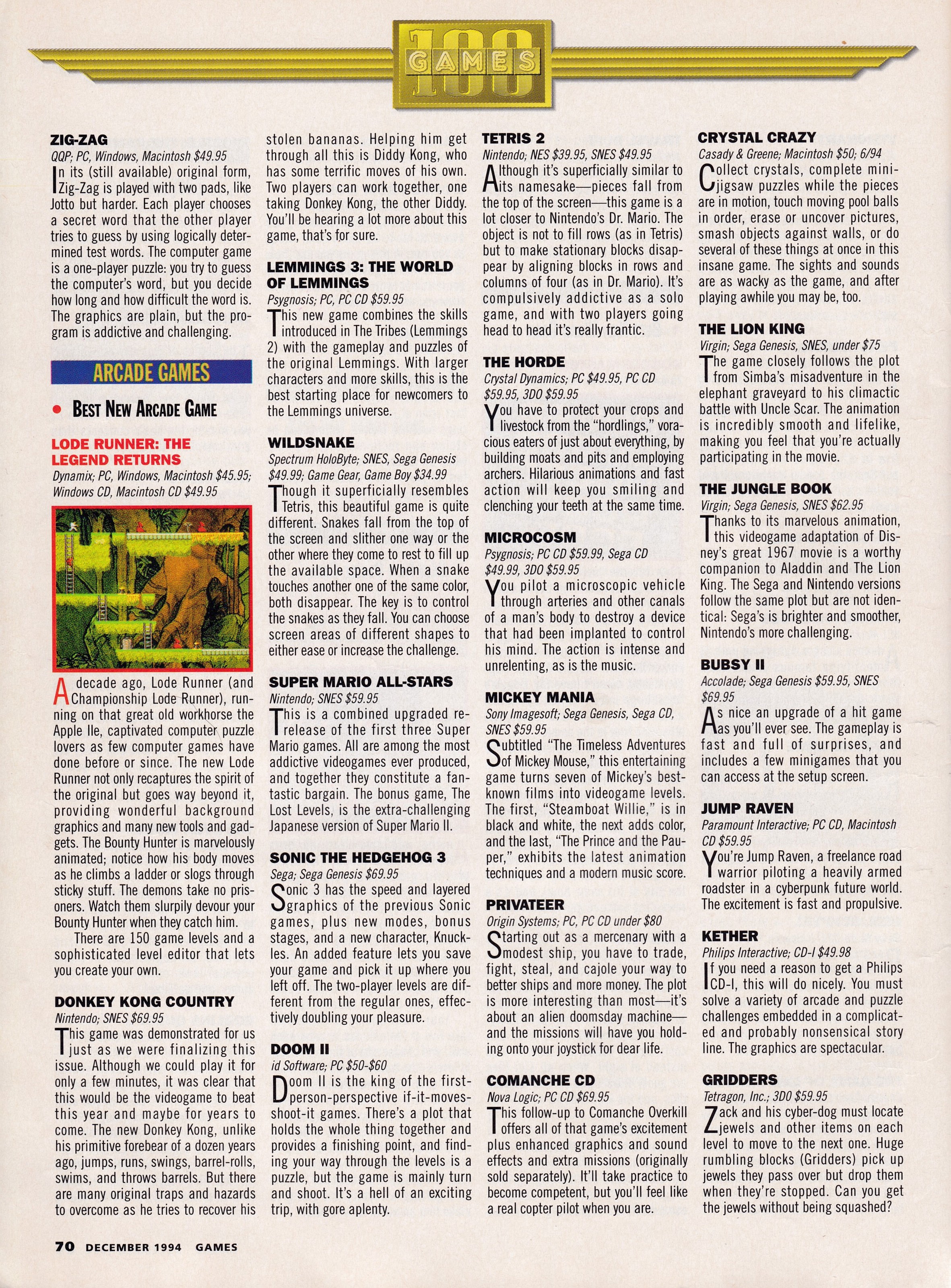
Old-school PC bias again: Lode Runner is better than Mario, Sonic, and Donkey Kong Country (which was major hot shit then). I'm aware of the original's popularity in a certain era, but I've never played Lode Runner, either the original or any subsequent update.
You can see GAMES trying to expand its existing categories to accommodate video games without letting them overrun the proceedings, and it's not really working. "Arcade" stuffs in everything from platformers to puzzle games to helicopter sims to FPSes. You can see why video games were given a separate top 100 list the following year.
Also, GAMES's experience with Donkey Kong Country echoes its handling of Mario 64 a couple years later: it spends a few minutes with what would be a landmark console title, deems it potentially groundbreaking and possibly one of the greatest console games of all time but assigns it a runner-up spot due to insufficient time with the title to judge it fairly, and completely forgets about something it labeled a likely industry-changer subsequently.

Not much to say here. CD-i stream mainstay International Open Tennis gains a spot here. Heh, Archon. I remember messing around with it on a Commodore 64 with the daughter of someone my mother was meeting for business - one of my few memories of going over to someone's house to play as a kid. I was 8 and she was 12, and we both thought we were four years older than we were. I love the aesthetic and have always wanted to play it as an adult, but the classic version isn't available commercially. Guess it's time for My Abandonware.
I'd never heard of Millennium Auction before. Of course, it has an Obscuritory article.
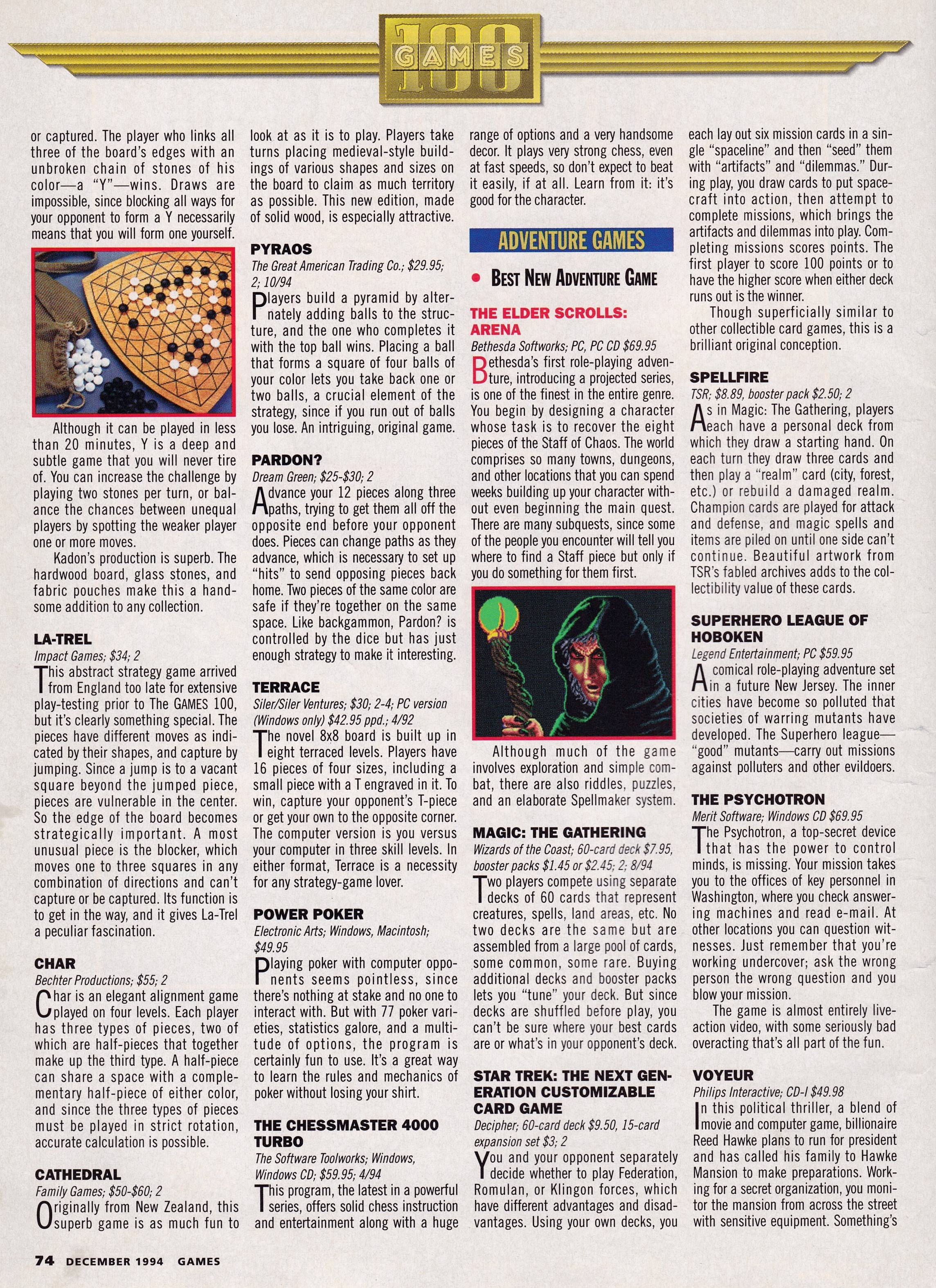
More growing pains: CCGs are listed in the Adventure category, apparently the same genre as the very first Elder Scrolls game (which is in the same genre as Voyeur, evidently).
The title of a Sorry knock-off: Pardon?.
I'd like to call your attention to the entry on the board game La-Trel, which, like Mario 64, GAMES didn't get a chance to try out thoroughly before deadline, despite it evidently being a very obvious frontrunner, but which they put among the secondary honorees in its category anyway, almost just on a hunch. Particularly after Giant Bomb recording and posting its discussions, we're accustomed to agonized, protracted discussions as to what will be Game of the Year, the award being an all-important choice. GAMES, in contrast, makes little effort to be comprehensive; many years, I recall thinking that the Games 100 was just a list of 100 games their reviewers had happened to play that year. (I recall in particular the GAMES reviewer's reaction to No More Heroes being primarily one of repulsion by the violence, but the game made the end-of-year list anyway.) This approach has very obvious drawbacks, and I feel these affairs should exercise due diligence and make at least a rudimentary effort to be reasonably comprehensive, but I will say there's a refreshing lack of self-importance about GAMES's awards: "Here are our picks. Maybe we're wrong. Hell if we know."
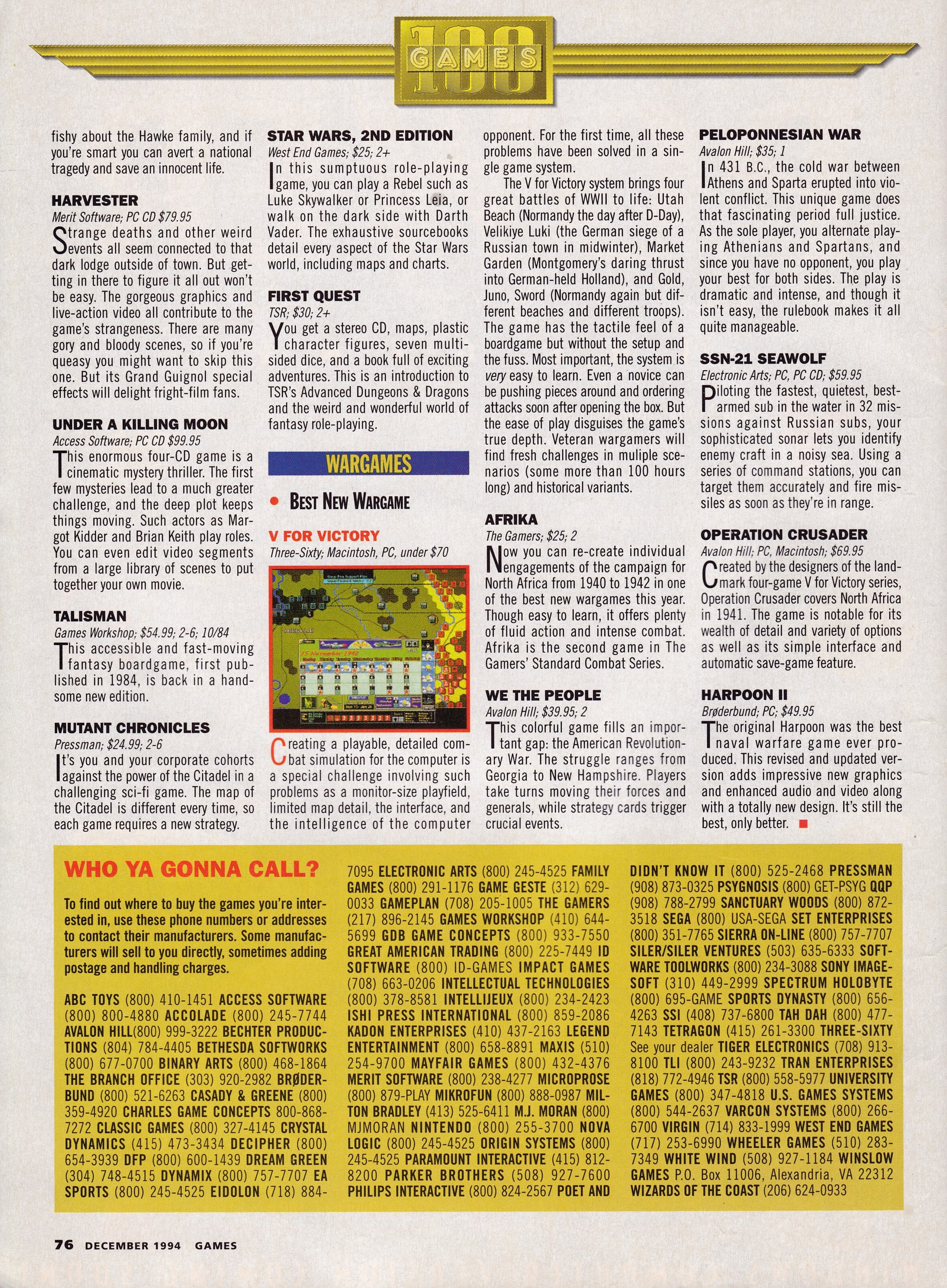
LOLLLLLLLLLLLLLLLLLLLLLLLLLL Harvester. Every so often, someone will attempt to bring Harvester back into the spotlight as a prestige title, and it'll get swiftly quashed, because Harvester is fucking Harvester. The continuous failed attempts provide a perpetual reassurance that there yet linger some standards, however meager, of taste. If this ever fails and Harvester is ever taken seriously, we'll know the last bastion of culture has fallen and that there truly is no hope for our woebegotten world.
Also, I am not a fan of this game, but: Final Fantasy VI didn't make the list, but freaking Harvester did. Sign of the times, though.
Under a Killing Moon was one hundred freaking dollars when it came out. That's Phantasy Star IV money.
That was short. Let's compensate with a few other pages.
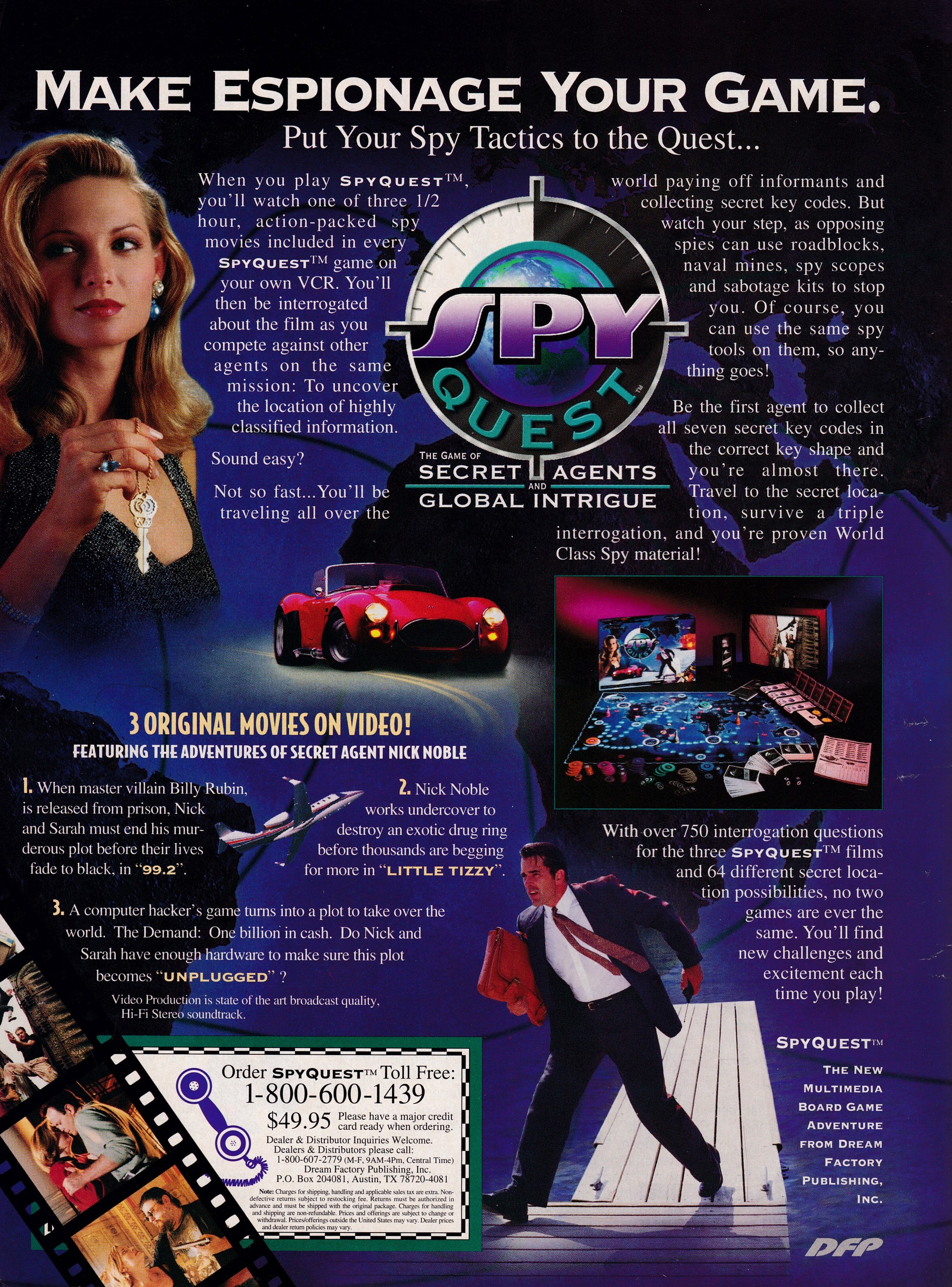
SpyQuest! VHS thrills!
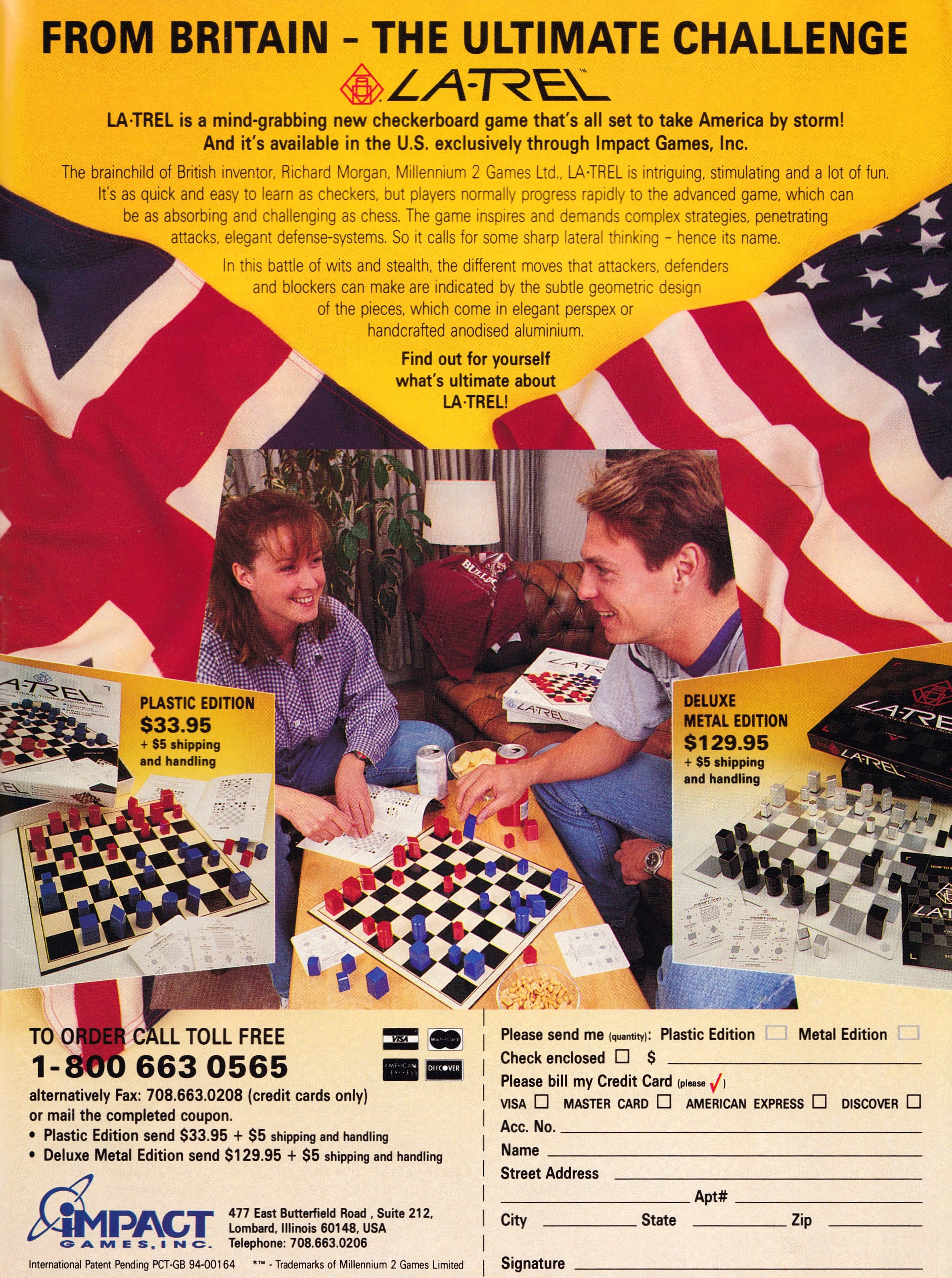
An ad for the aforementional La-Trel, featuring '90s fashion, decor, and photography.
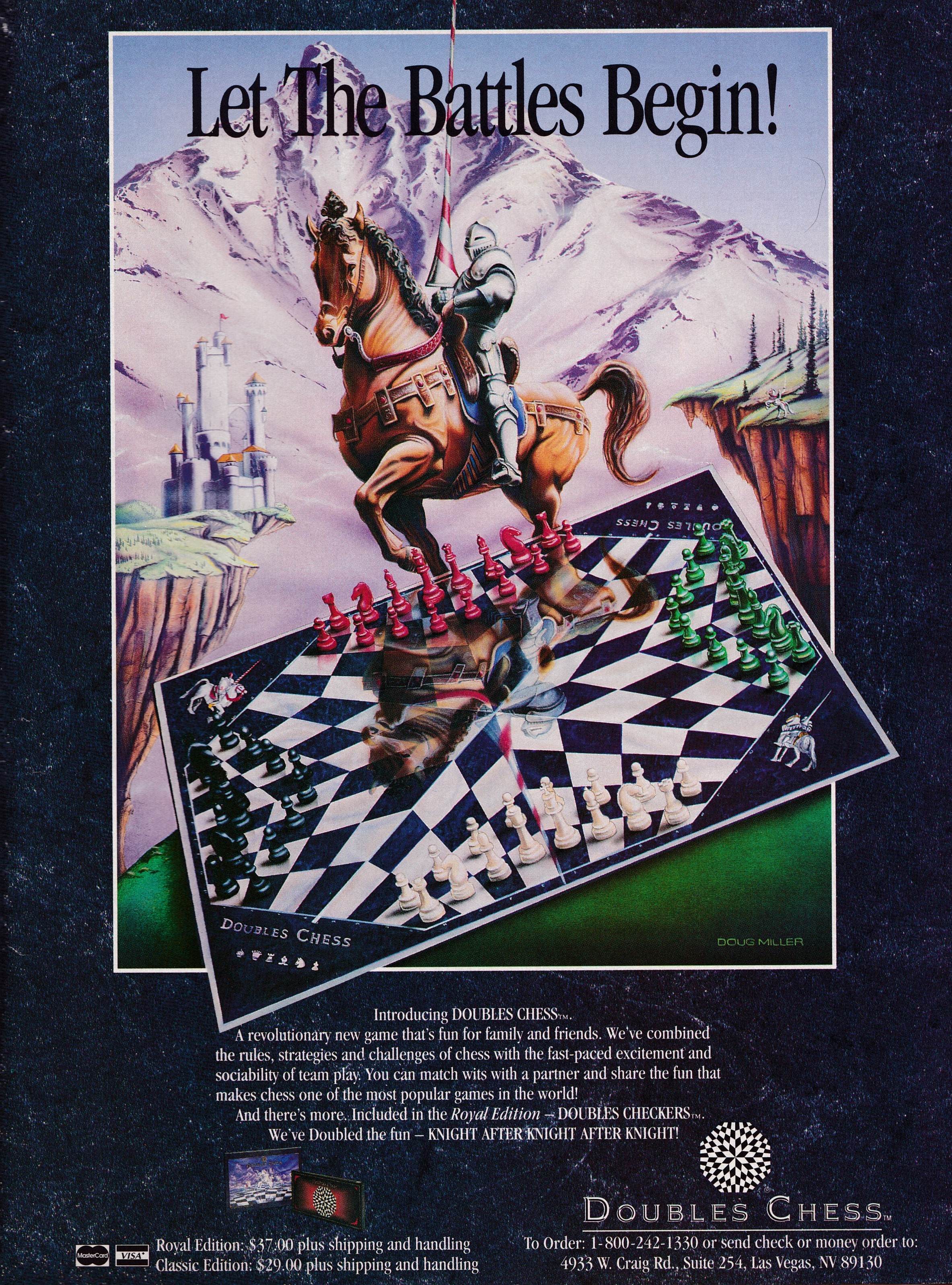
Look at this badass motherfucker. I refer to both the ad and the look of the game board. No idea how it plays, of course.
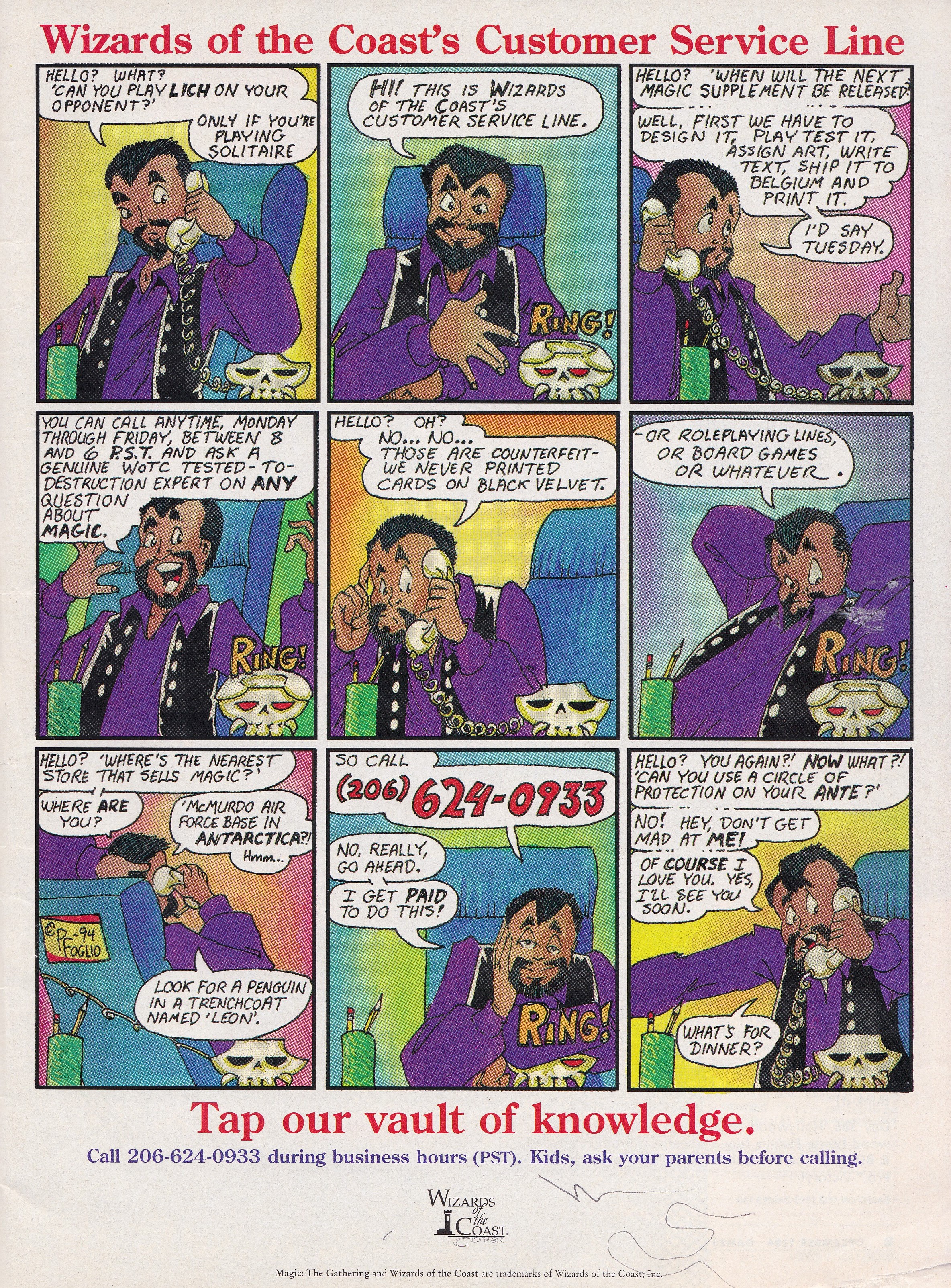
Wizards of the Coast FAQ hotline at the dawn of Magic. Not 1-900, oddly.
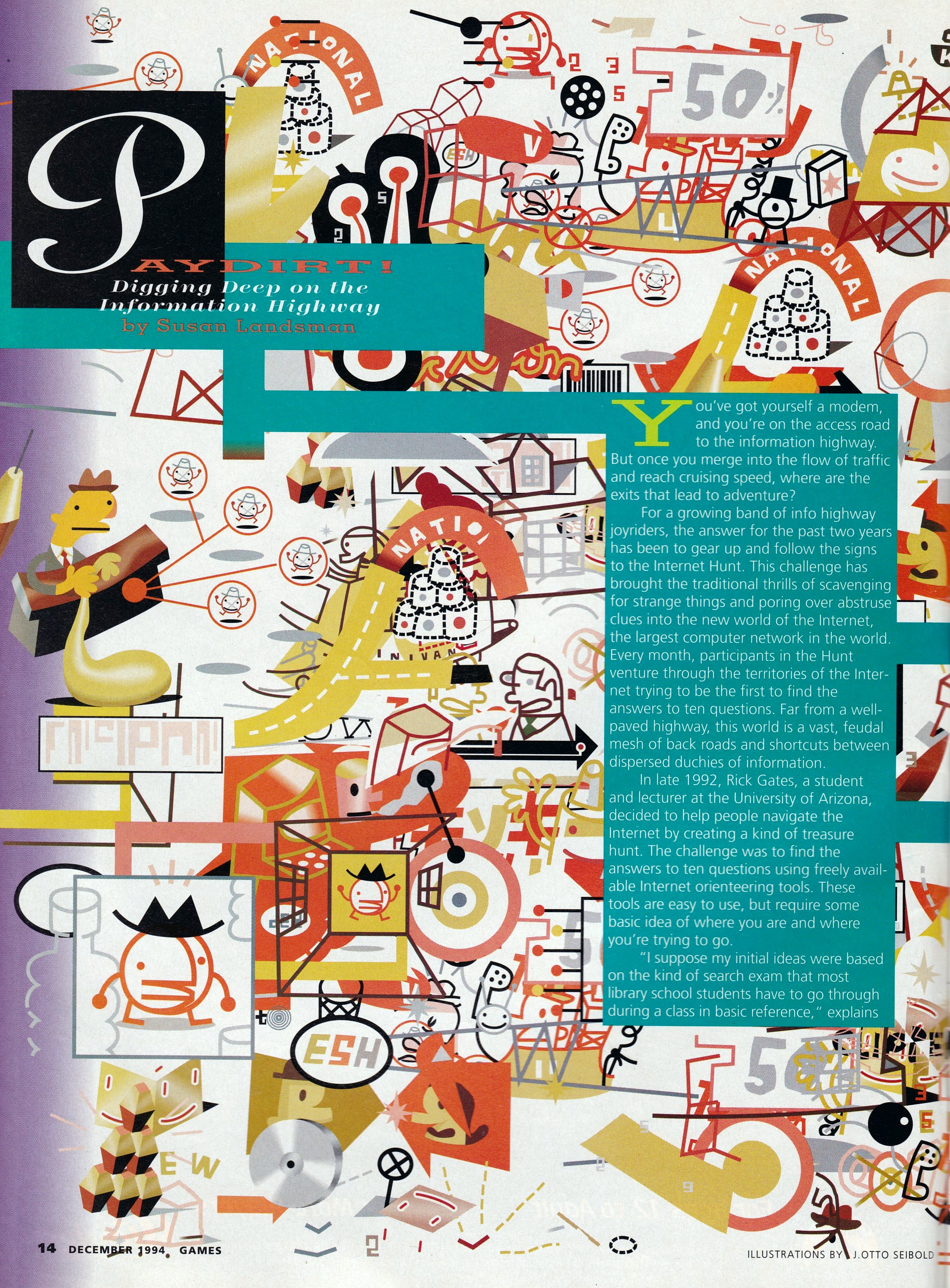
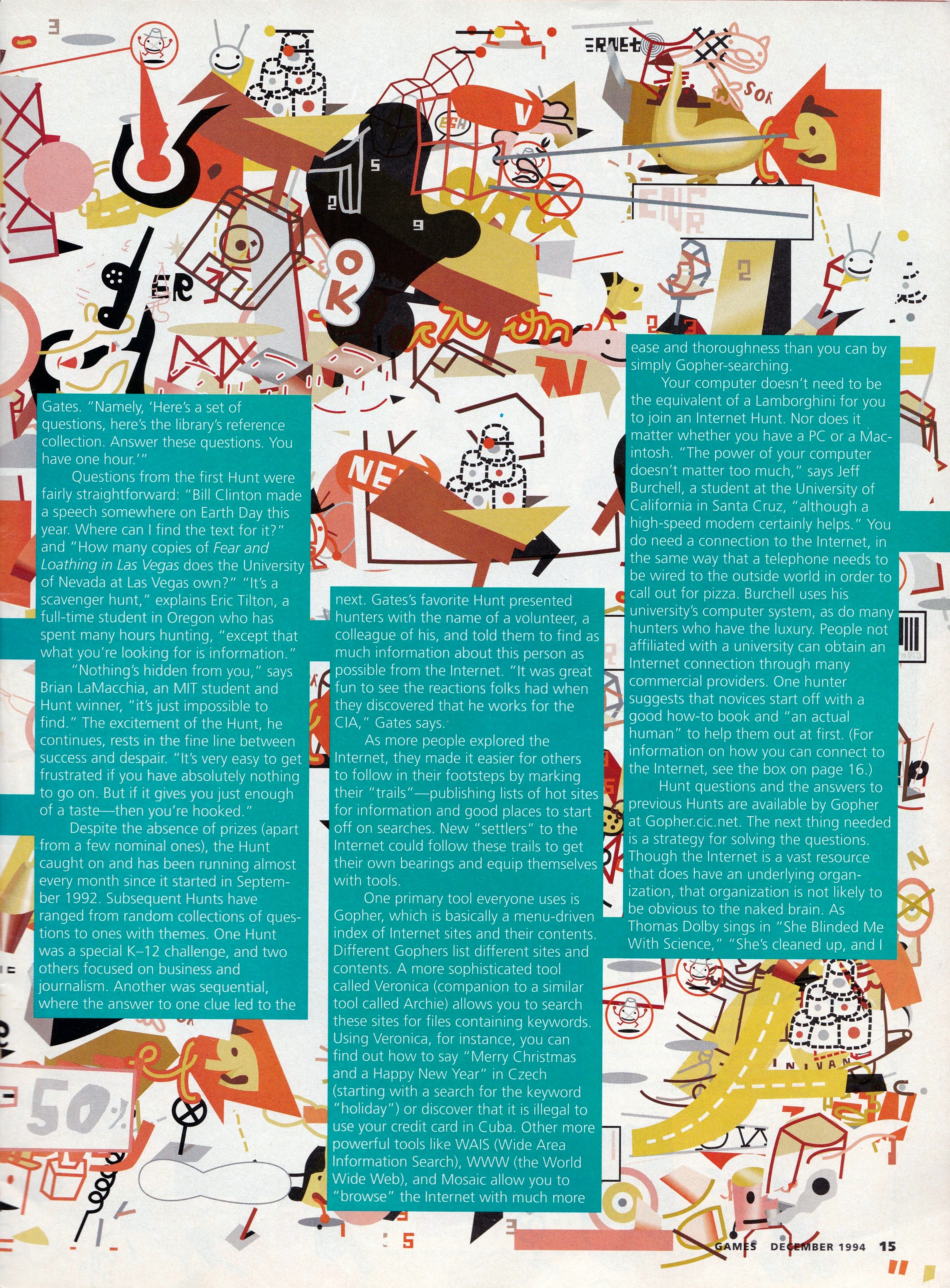
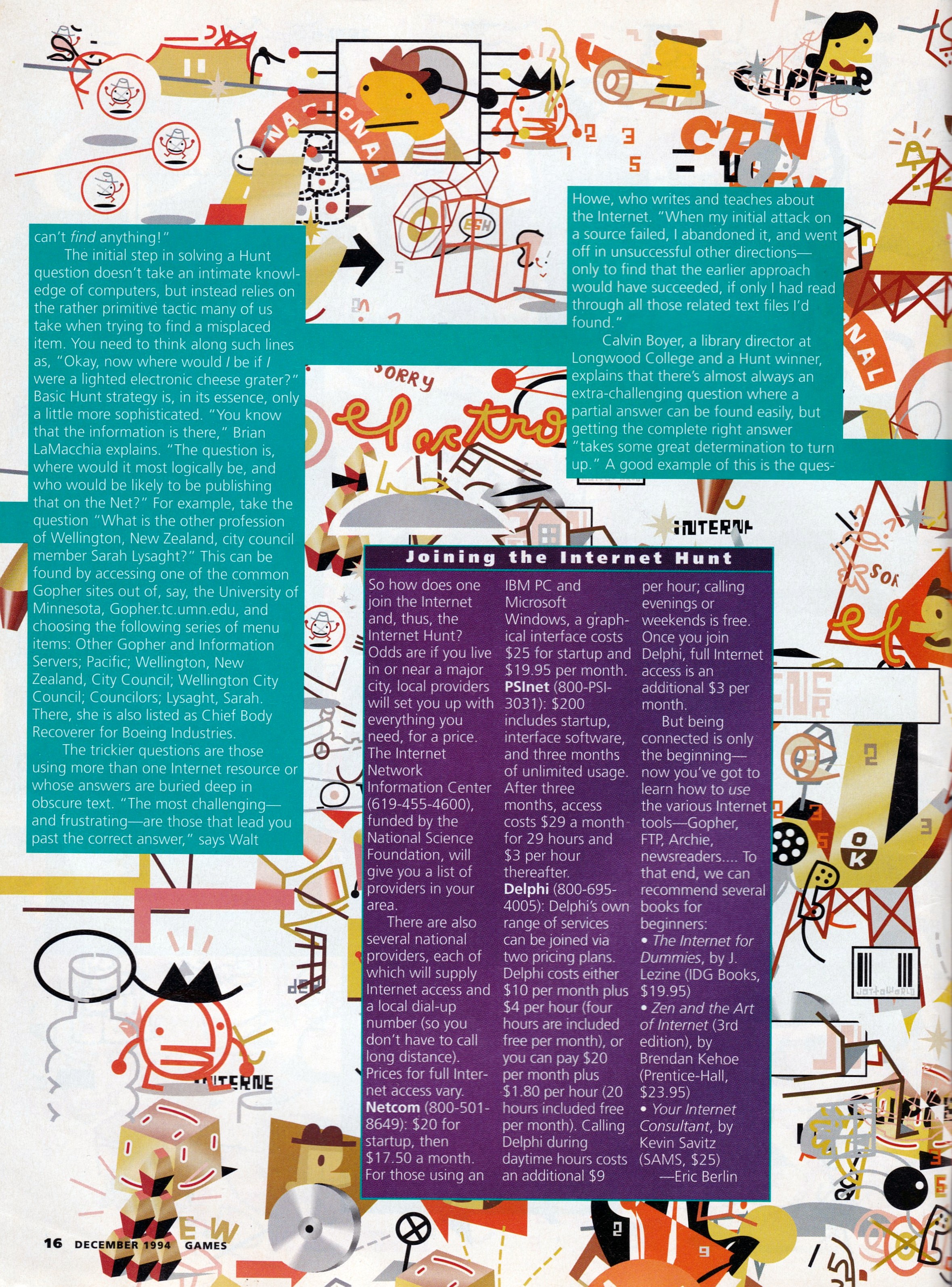
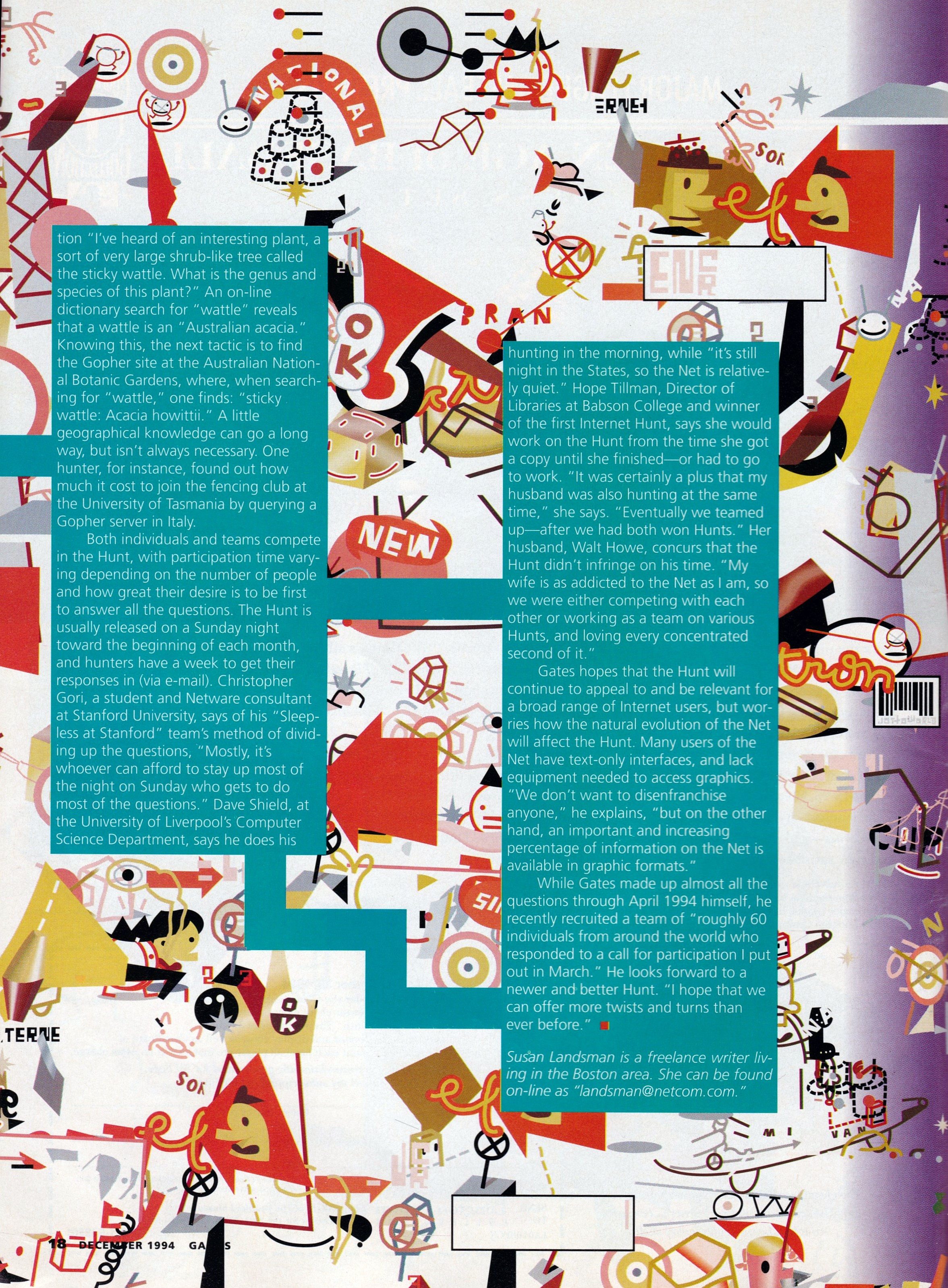
A four-page article about making a competition out of the complex task of finding information on the internet before Yahoo and Google. Note that we also have to explain exactly what the internet is in the first paragraph. Delphi: internet access at $4 per hour!
Let's end this installment with a warm benediction from Alexey Pajitnov:
